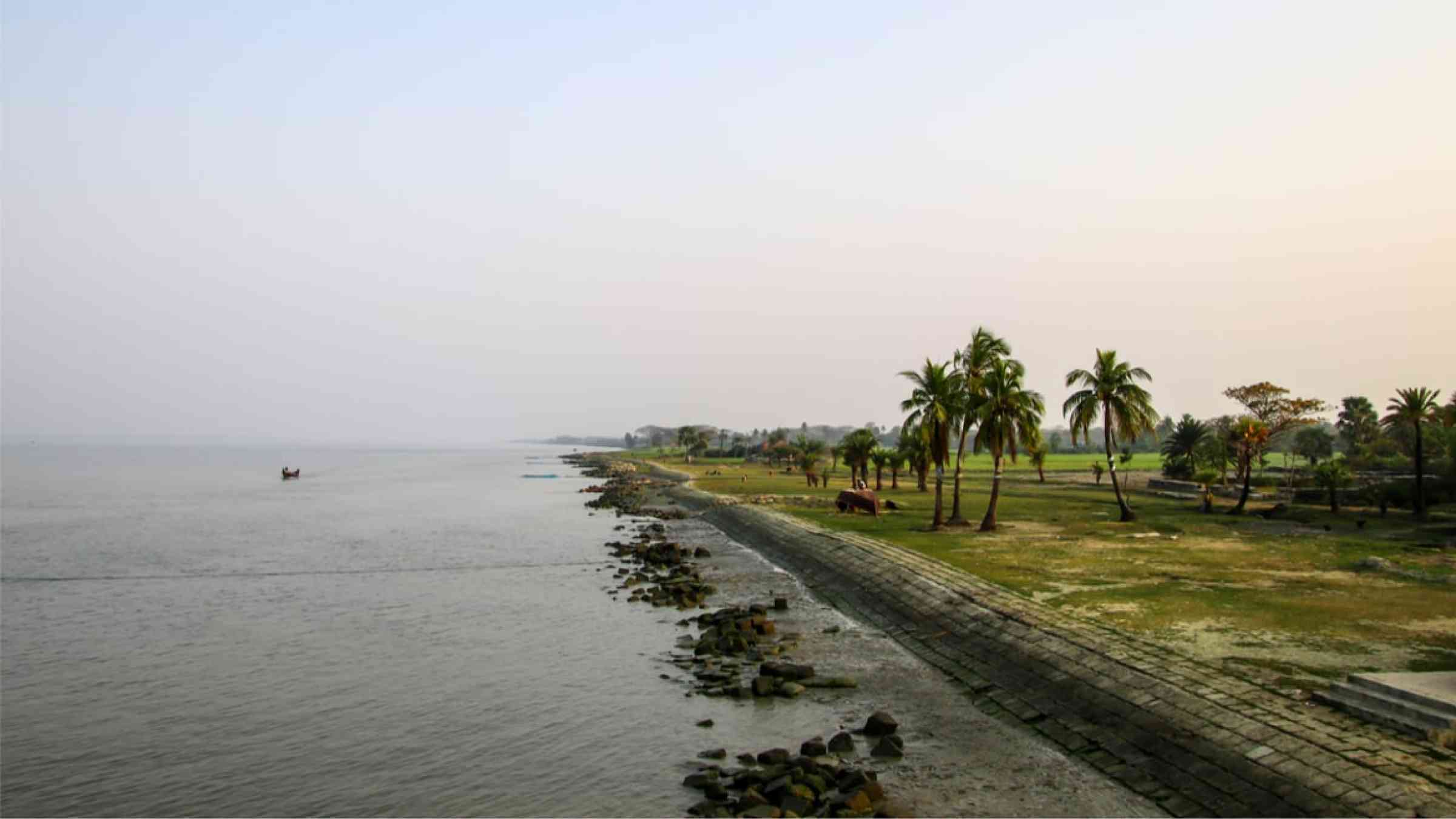Enhancing climate resilience in Bangladesh’s coastal towns: A collaborative endeavor

The theme for this year’s International Day for Disaster Risk Reduction is “Fighting inequality for a resilient future.”
On this International Day, we highlight how GCA and its partners are giving voice to local communities by incorporating People’s Adaptation Plans into the Asian Development Bank’s Coastal Towns Climate Resilience Project, which aims to bolster the resilience of 22 coastal towns in Bangladesh.
Coastal regions, with their unique landscapes and ecosystems, are often the first to bear the brunt of climate change. In Bangladesh, the stakes are even higher. The country’s coastal cities and towns are not just grappling with the direct impacts of climate change but are also contending with socio-economic challenges that exacerbate their vulnerability.
The Vulnerability of Coastal Towns
Bangladesh’s coastal towns are particularly susceptible to climate change due to several intertwined factors:
- High Poverty Levels: Economic constraints often hinder the ability of communities to adapt and respond to climate threats.
- Limited Capacity of Local Governments: The local bodies in urban areas often struggle with resource constraints, limiting their ability to address vulnerabilities effectively.
- Influx of Migrants: These towns attract a significant number of migrants from nearby climate-vulnerable regions, adding to the population pressure.
- Lack of Resilient Infrastructure: Especially in low-income informal settlements, there’s a glaring absence of public services and disaster and resilient infrastructure.
If not addressed, these challenges could lead to a proliferation of climate-vulnerable informal settlements, further straining already limited resources.
The Coastal Towns Climate Resilience Project
The Government of Bangladesh has requested support from the Asian Development Bank (ADB) to strengthen the climate resilience of vulnerable coastal towns, thereby enhancing their ability to anticipate, absorb, accommodate, and recover from the effects of climate shocks and stresses. The Coastal Towns Climate Resilience Project (CTCRP) being implemented by the ADB has a special focus on improving climate and disaster resilience of coastal towns in Bangladesh by developing flood risk management infrastructure including stormwater drainage systems and nature-based solutions, waste management and cyclone shelters. The target? To bolster the resilience of 22 coastal towns in Bangladesh.
Collaborative Efforts for a Resilient Future
The Global Center on Adaptation (GCA) has joined hands with the Institute of Water and Flood Modelling (IWFM) at the Bangladesh University of Engineering and Technology (BUET). Their mission is to support the Local Government Engineering Department (LGED) of Bangladesh and ADB in assessing and prioritizing climate resilience and adaptation solutions for these 22 coastal towns. A special focus has been placed on finding Nature-based Solutions for towns like Bagerhat, Chalna, Kuakata, and Morrelganj.
Moreover, GCA is collaborating with local practitioners and grassroots organizations with experience in implementing effective locally led efforts on the ground to develop People’s Adaptation Plans in selected cities. These plans aim to inform investments under the project and reduce the vulnerability of slum residents. To develop these plans, GCA is partnering with BRAC, an international development organization that works with communities in marginalized situations across Asia and Africa; Supporting People and Rebuilding Communities (SPaRC), a Bangladesh-based, women-led organization working to improve the lives and livelihoods of the most vulnerable and voiceless; and the International Centre for Climate Change and Development (ICCCAD), a research and capacity building organization working on climate change and development in Bangladesh.
Field-Level Investigations and Infrastructure Development
Detailed field investigations are being conducted in Bagerhat, Morrelganj, Chalna, and Kuakata municipalities to understand the impacts of climate change and explore adaptation options. Under the Project, various urban infrastructure is being rehabilitated. GCA and BUET are assessing how Nature-based Solutions can be integrated into the planning and design of essential urban structures and services.
Stakeholder Consultation Workshop: A Step Forward
On 26th September 2023, a stakeholder consultation workshop was organized. This event brought together over 50 participants from diverse sectors, facilitating discussions on enhancing coastal resilience through Nature-based Solutions.
Invited speakers and technical experts shared their insights, emphasizing the importance of collaborative efforts. The workshop underscored the need for data-driven approaches, youth engagement, and innovative solutions to address the multifaceted challenges of climate change in Bangladesh’s coastal regions.
As the Chief Guest of this workshop, Professor Saleemul Huq, Director of ICCCAD and GCA Senior Advisor on Locally Led Action, spoke about engaging young people to ascertain the solutions that are economic, feasible and nature based.
Dr. A.K.M. Saiful Islam, Director, IWFM delivered a presentation on the approach, methodology and ongoing assessment of future changes in climate variables including temperature, precipitation, Intensity-Duration-Frequency curves, river flow, regional sea level rise, storm surge height, land use pattern, riverbank erosion and salinity intrusion.
Emeritus Professor, Dr. Ainun Nishat moderated the technical session and open discussion. He recognized GCA and BUET for undertaking this study to engage in coastal resilience and improving the lives of people in the most vulnerable region of Bangladesh. This study is generating climate change data to provide technical support to the infrastructure implementing agency, the Local Government Engineering Department, in planning, designing and constructing climate resilient infrastructure.
A Collective Journey Towards Climate Resilience
The journey to bolstering the resilience of Bangladesh’s coastal towns is a collective one. Through collaborative research, stakeholder engagement, and on-ground implementation, the Coastal Towns Climate Resilience Project investments expected to reduce climate vulnerability of slum residents, while enhancing local leadership and capacity to understand and address climate vulnerability. In doing so, building a future where these towns are not just resilient but also thriving hubs of socio-economic growth.
